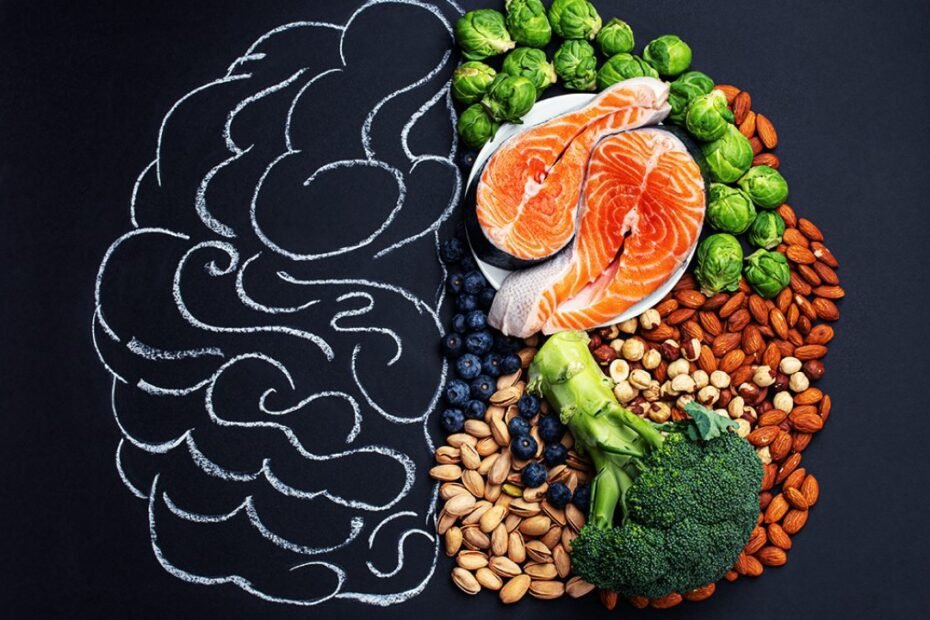In the fast-paced, information-rich world we live in today, mental clarity and cognitive sharpness have become more valuable than ever. Whether you’re striving for peak performance at work, improved academic focus, or simply a more balanced and peaceful state of mind, the role of nutrition in achieving mental clarity should not be underestimated.
The brain, a remarkable and intricate organ, relies on a continuous supply of nutrients to function optimally. From essential fatty acids that facilitate communication between brain cells to antioxidants that protect against oxidative stress, what you eat plays a pivotal role in your mental well-being.
In this article, we’ll delve into the fascinating relationship between nutrition and mental clarity, exploring the key nutrients that support cognitive function, the gut-brain connection, and practical dietary tips for achieving and sustaining a clear and focused mind.
Let’s embark on a journey to discover how you can harness the power of nutrition to sharpen your mental faculties and achieve a state of heightened awareness and clarity.
Nutrients for Brain Health
Our brains are highly energy-dependent organs, and they require a variety of nutrients to function optimally. Here are some key nutrients that play a crucial role in supporting mental clarity:
1. Omega-3 Fatty Acids
Omega-3 fatty acids, found in fatty fish like salmon, walnuts, and flaxseeds, are essential for brain health. They help build and repair brain cells, improve communication between brain cells, and reduce inflammation in the brain. Omega-3s are linked to better cognitive function and a reduced risk of cognitive decline.
2. Antioxidants
Antioxidants, such as vitamins C and E, protect the brain from oxidative stress and inflammation. Berries, citrus fruits, and nuts are rich sources of these vitamins. Antioxidants can help enhance memory and cognitive function.
3. B Vitamins
B vitamins, including B6, B9 (folate), and B12, are essential for nerve function and the production of neurotransmitters that regulate mood and cognitive processes. Leafy greens, legumes, and lean meats are good sources of these vitamins.
4. Protein
Protein provides the amino acids necessary for the production of neurotransmitters like serotonin and dopamine, which play a crucial role in mood regulation and mental clarity. Include lean meats, fish, eggs, and plant-based sources of protein in your diet.
5. Complex Carbohydrates
Whole grains and complex carbohydrates provide a steady supply of glucose, the brain’s primary source of energy. They help maintain focus and prevent mental fatigue.
The Gut-Brain Connection
The gut and the brain are intricately connected through a network of nerves, hormones, and biochemical signals. This connection is often referred to as the gut-brain axis. The state of your gut health can significantly impact your mental clarity and mood.
Probiotics
Consuming foods rich in probiotics, such as yogurt, kefir, and sauerkraut, can support a healthy gut microbiome. A balanced gut microbiome is associated with improved mood and cognitive function.
Prebiotics
Prebiotics are dietary fibers that feed the beneficial bacteria in your gut. Foods like garlic, onions, and bananas contain prebiotics and can help maintain a healthy gut environment.
The Impact of Hydration
Dehydration can lead to poor concentration, headaches, and even mood swings. Staying adequately hydrated is essential for maintaining mental clarity. Aim to drink enough water throughout the day, and consider adding hydrating foods like watermelon and cucumber to your diet.
Processed Foods and Mental Clarity
On the flip side, heavily processed foods, high in sugar, unhealthy fats, and additives, can have a detrimental effect on mental clarity. They may lead to energy crashes, brain fog, and mood swings. Minimizing the consumption of processed foods is a wise choice for both physical and mental well-being.
Balanced Eating for Mental Clarity
Achieving mental clarity through nutrition is not about any single “superfood” but rather about adopting a balanced and varied diet. Incorporate a wide range of nutrient-rich foods into your meals, focus on whole foods, and minimize processed items. A balanced diet that supports brain health can contribute to improved concentration, enhanced memory, and better overall cognitive function.
Conclusion
The connection between nutrition and mental clarity is undeniable. The foods we eat provide the building blocks and energy required for optimal brain function. By making mindful choices in our diet, prioritizing nutrient-rich foods, and supporting gut health, we can enhance our mental clarity and overall cognitive well-being.
